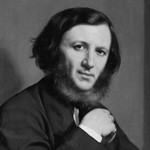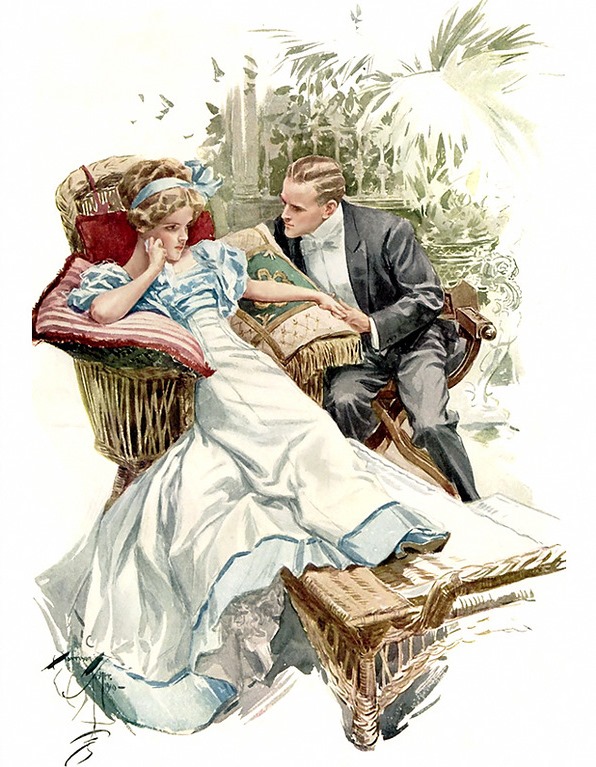 Robert Browning (1812-1889) was an English poet and playwright whose mastery of dramatic verse, especially monologues, secured him a place as one of the foremost Victorian poets. In 1846, he married poet Elizabeth Barrett Browning, a semi-invalid and virtual prisoner in her father’s home. Men and Women, a collection of dramatic monologues dedicated to his wife, is his most widely-read work.
Robert Browning (1812-1889) was an English poet and playwright whose mastery of dramatic verse, especially monologues, secured him a place as one of the foremost Victorian poets. In 1846, he married poet Elizabeth Barrett Browning, a semi-invalid and virtual prisoner in her father’s home. Men and Women, a collection of dramatic monologues dedicated to his wife, is his most widely-read work.
Life in a Love
Escape me?
Never—
Beloved!
While I am I, and you are you,
So long as the world contains us both,
Me the loving and you the loth,
While the one eludes, must the other pursue.
My life is a fault at last, I fear:
It seems too much like a fate, indeed!
Though I do my best I shall scarce succeed.
But what if I fail of my purpose here?
It is but to keep the nerves at strain,
To dry one’s eyes and laugh at a fall,
And baffled, get up to begin again,—
So the chase takes up one’s life, that’s all.
While, look but once from your farthest bound,
At me so deep in the dust and dark,
No sooner the old hope drops to ground
Than a new one, straight to the selfsame mark,
I shape me—
Ever
Removed!
Now
Out of your whole life give but one moment!
All of your life that has gone before,
All to come after it, so you ignore,
So you make perfect the present, condense,
In a rapture of rage, for perfection’s endowment,
Thought and feeling and soul and sense
Merged in a moment which gives me at last
You around me for once, you beneath me, above me
Me—sure that despite of time future, time past,
This tick of our life-time’s one moment you love me!
How long such suspension may linger? Ah, Sweet—
The moment eternal —just that and no more—
When ecstasy’s utmost we clutch at the core
While cheeks burn, arms open, eyes shut and lips meet!
A Face
If one could have that little head of hers
Painted upon a background of pale gold,
Such as the Tuscan’s early art prefers!
No shade encroaching on the matchless mould
Of those two lips, which should be opening soft
In the pure profile; not as when she laughs,
For that spoils all: but rather as if aloft
Yon hyacinth, she loves so, leaned its staff’s
Burthen of honey-coloured buds to kiss
And capture ‘twixt the lips apart for this.
Then her lithe neck, three fingers might surround,
How it should waver on the pale gold ground,
Up to the fruit-shaped, perfect chin it lifts!
I know, Correggio loves to mass, in rifts
Of heaven, his angel faces, orb on orb
Breaking its outline, burning shades absorb:
But these are only massed there, I should think,
Waiting to see some wonder momently
Grow out, stand full, fade slow against the sky
(That’s the pale ground you’d see this sweet face by),
All heaven, meanwhile, condensed into one eye
Which fears to lose the wonder, should it wink.
